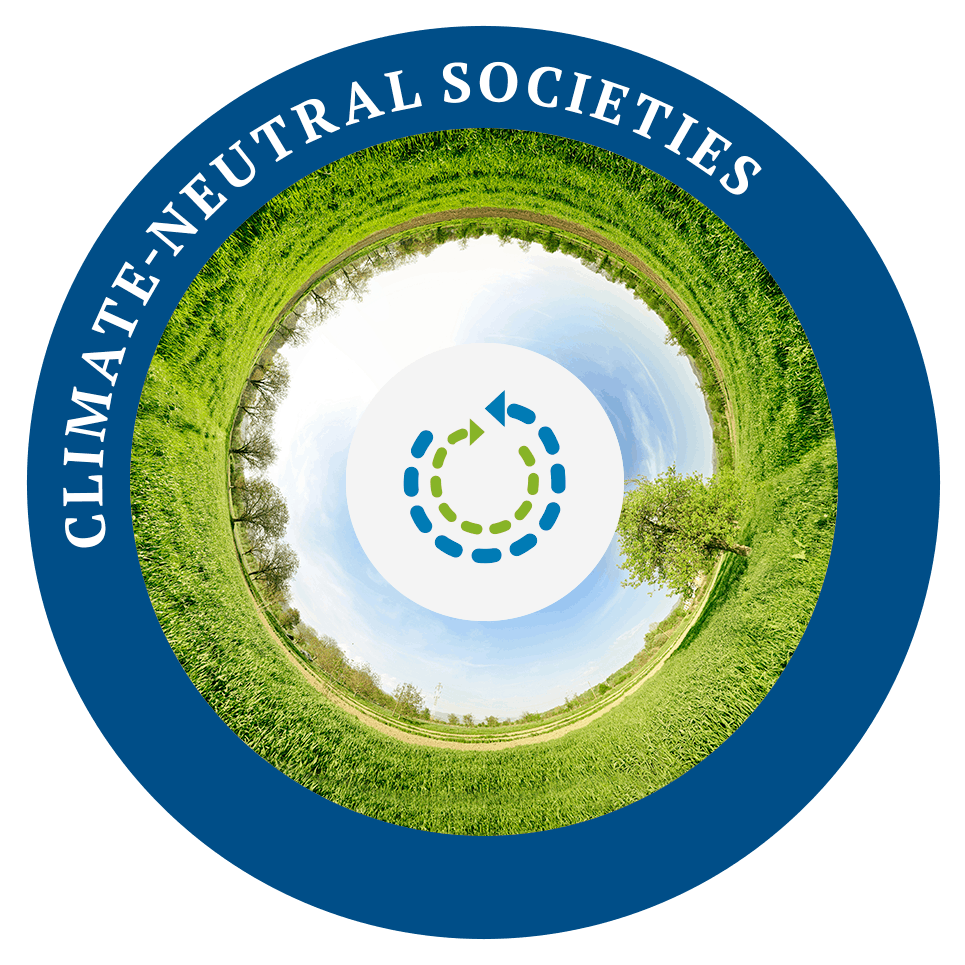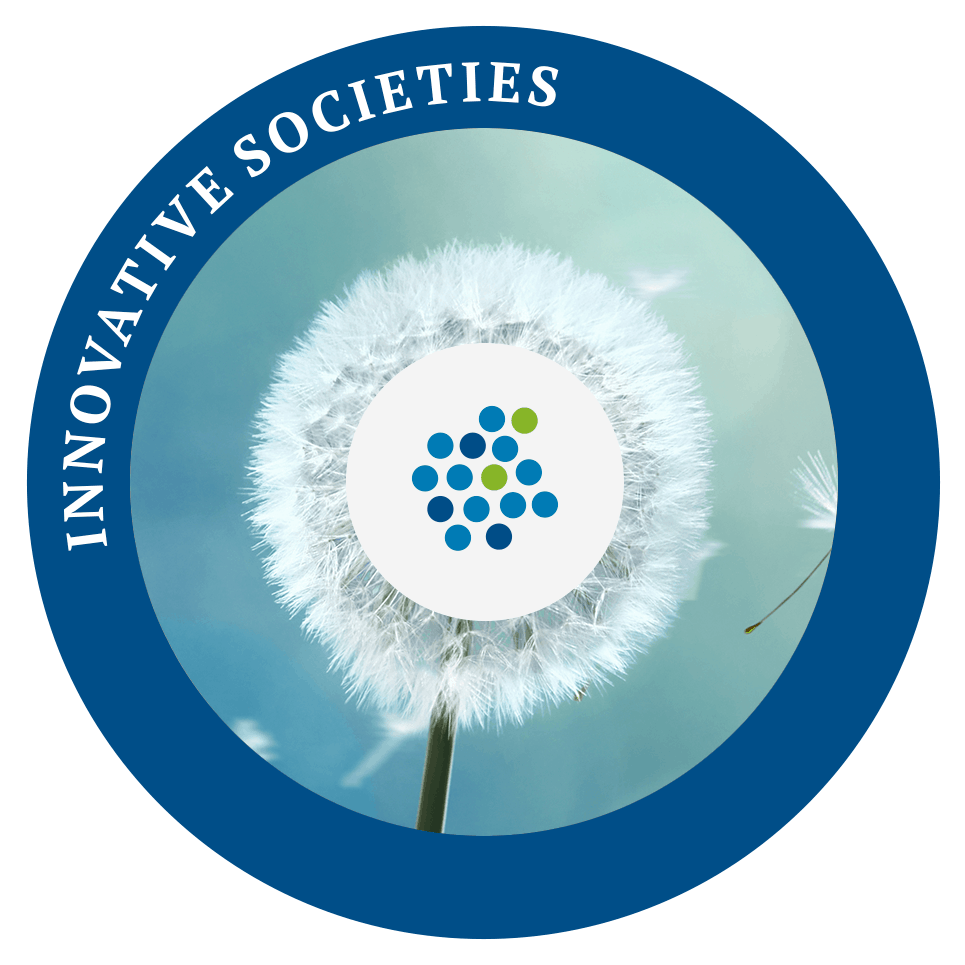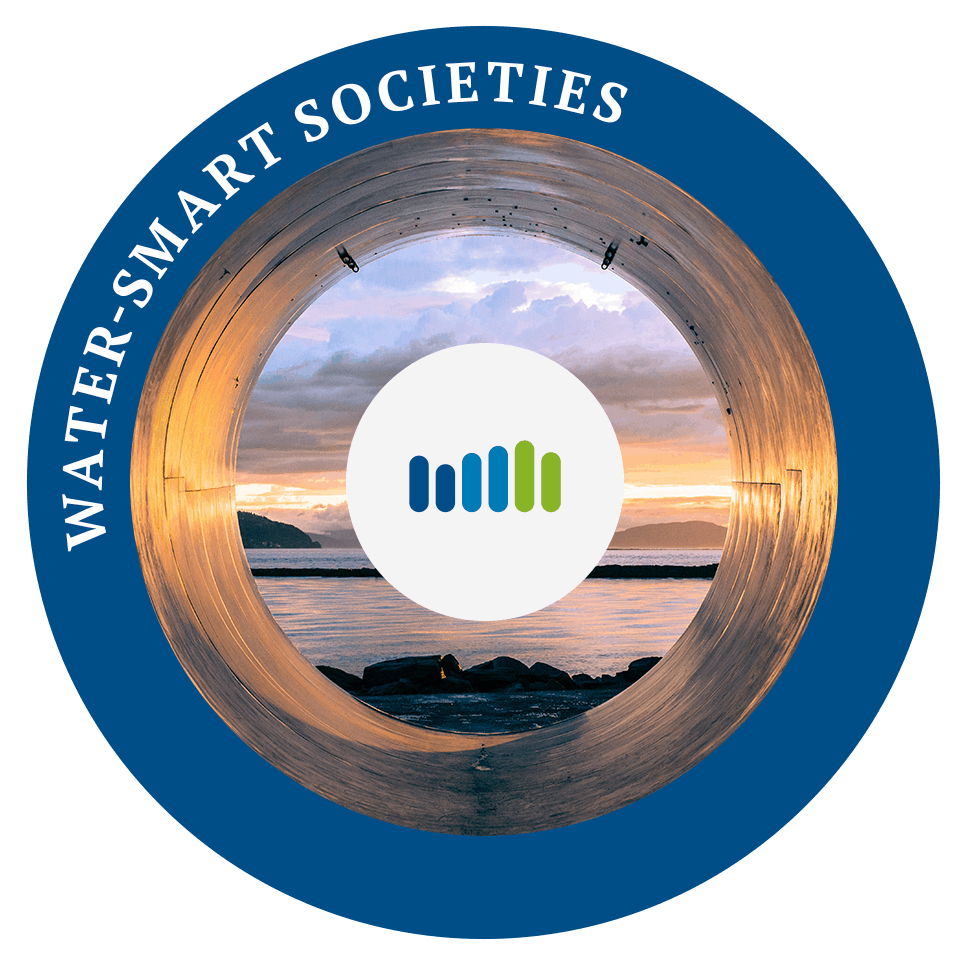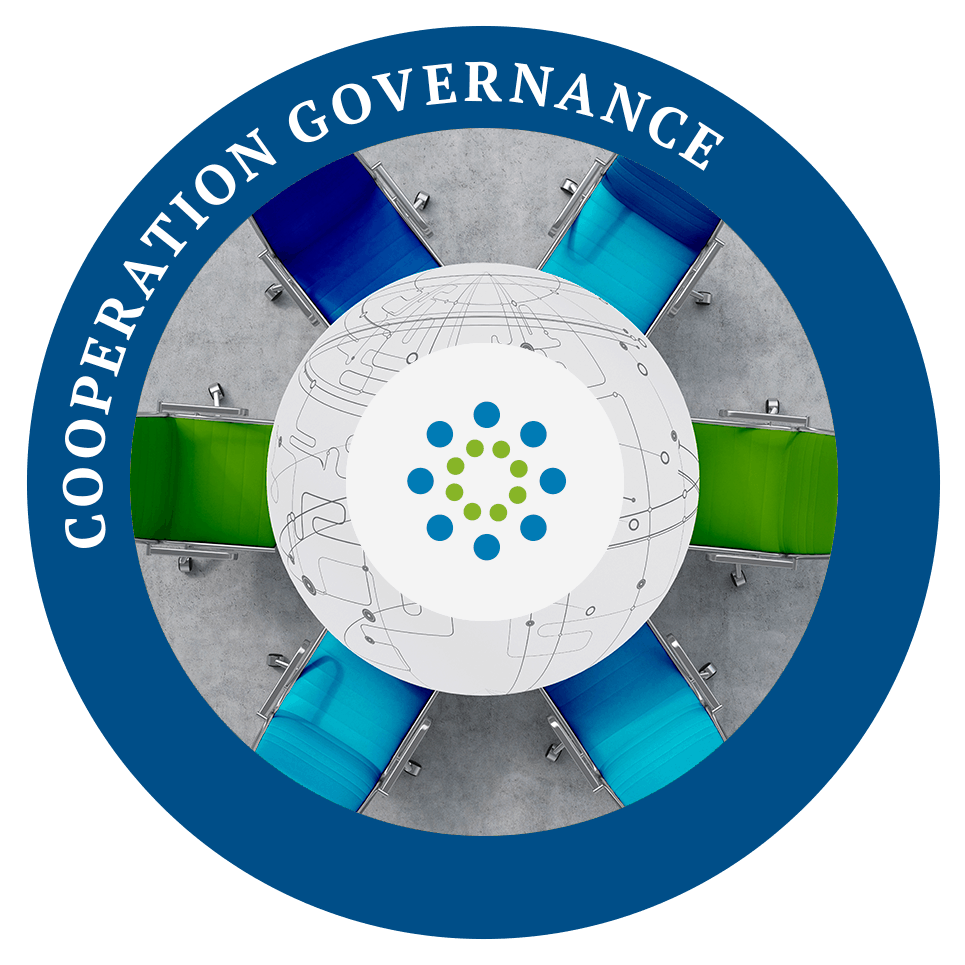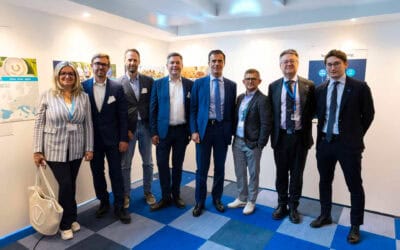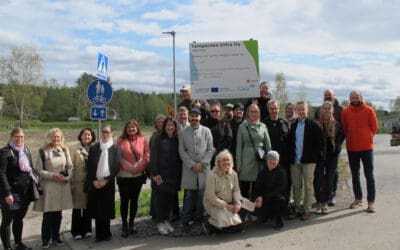priority 3: Climate-neutral societies
Objective 3.1
Circular economy
The Programme supports actions that facilitate the shift from linear to circular resource use. This implies keeping products and materials in use for as long as possible without increasing pressure on the environment. The holistic approach shall go beyond waste management to connect with water, energy, transport and land use.
What is circular economy?
Ensuring steady growth of the Baltic Sea region without increasing pressure on the environment including water, air and soil requires transitioning towards a circular economy. The Programme supports actions that facilitate the shift from linear to circular resource use. This implies keeping products and materials in use for as long as possible. The Programme encourages holistic approaches that go beyond waste management to connect with water, energy, transport and land use. This requires facilitating behavioural change and integrated planning. In consequence, the shift towards circular economy is a valuable factor in fighting environmental challenges like overexploitation of the natural resources, inadequate air quality as well as climate change.
Actions to build enabling environment
To accelerate the transition, the Programme especially supports actions that build an enabling environment and raise awareness for circular opportunities. The actions foster a systemic shift that creates long-term opportunities for business as well as environmental and societal benefits. For this reason, business and communities are considered to be at the heart of the transition. Considering the needs of business actors, the Programme provides a space to redefine smart specialisation approaches to advance the shift towards circularity. Furthermore, actions should take into account not only potential winners but also those disadvantaged by the transition processes. Wherever appropriate, the actions consider uneven territorial effects e.g. between urban and rural areas or specificities of remote areas. The solutions developed are encouraged to untap the potential of digitalisation as a means of achieving a resource-efficient economy in the Baltic Sea region.
What can I do in my project?
We believe our projects help implement several important strategies in our region, and, in particular, the EU Strategy for the Baltic Sea Region and its policy areas Innovation, Bioeconomy, and Health.
Integrate circular economy policies
Integrate circular economy policies into territorial strategies and test their implementation, link to other relevant regional and national strategies e.g. for smart specialisation;
Rethink urban & regional planning processes
Rethink urban and regional planning processes in sectors key to achieving circularity (e.g. transport, water, energy, and waste management) in order to adopt better integrated and systemic approaches;
Help businesses to adopt circular approaches
Provide support services that help businesses adopt more circular approaches e.g. support a shift from ownership to new business models based on flexible and affordable access to services;
Link bio and circular economy
Test solutions that create synergies between bio and circular economy e.g. support industrial symbiosis using waste material from forest industry by companies in different sectors.
Test public procurement models
Test public procurement models that strengthen the role of public authorities in supporting a transition towards circularity;
Support entrepreneurial & civil society initiatives
Coordinate and support entrepreneurial and civil society initiatives in promoting circular economy and support change in attitudes i.e. create awareness of circular opportunities among business executives, owners and consumers;
Transform business models
Apply digital technologies to transform business models from linear to circular, e.g. to match suppliers and producers, track the journey of components and materials, help virtualise products;
Get inspired by the ongoing projects
Sign up now
Newsletter subscription
Four priorities & nine objectives
Four priorities for cooperation
Interreg Baltic Sea Region 2021-2027 creates opportunities for organisations to connect
as if there were no borders. With experience and EU funding, we help them cooperate and put their ideas into practice.
Jointly, we make the life of people around the Baltic Sea better.
The Programme is structured along with four priorities. They guide partners in achieving the most when cooperating across borders.
Priority 1
Innovative societies
1.1 Resilient economies and communities
1.2 Responsive public services
Priority 3
Climate-neutral societies
3.1 Circular economy
3.2 Energy transition
3.3 Smart green mobility
Overview: all the Programme objectives
Resilient economies and communities
Objective 1.1
under Priority 1: Innovative societies
Sustainable waters
Objective 2.1
under Priority 2: Water-smart societies
Circular economy
Objective 3.1
under Priority 3: Climate-neutral societies
Project platforms
Objective 4.1
under Priority 4: Cooperation governance
Responsive public service
Objective 1.2
under Priority 1: Innovative societies
Blue economy
Objective 2.2
under Priority 2: Water-smart societies
Energy transition
Objective 3.2
under Priority 3: Climate-neutral societies
Macro-regional governance
Objective 4.2
under Priority 4: Cooperation governance
Resilient economies and communities
Objective 1.1
under Priority 1: Innovative societies
Responsive public service
Objective 1.2
under Priority 1: Innovative societies
Sustainable waters
Objective 2.1
under Priority 2: Water-smart societies
Blue economy
Objective 2.2
under Priority 2: Water-smart societies
Climate-neutral societies
Objective 3.1
under Priority 3: Climate-neutral societies
Energy transition
Objective 3.2
under Priority 3: Climate-neutral societies
Smart green mobility
Objective 3.3
under Priority 3: Climate-neutral societies
Project platforms
Objective 4.1
under Priority 4: Cooperation governance
Macro-regional governance
Objective 4.2
under Priority 4: Cooperation governance
News
CompositeCircle kicked off in Lappeenranta: setting the stage for circular innovation
The CompositeCircle project officially launched with a multi-day kick-off meeting in Lappeenranta, Finland, bringing together partners from across the Baltic...
(No title)
Energy Equilibrium seminar in Lithuania — Energy Accumulation for municipal energy sector
With the support of Association of Local Authorities in Lithuania the seminar “Energy sector planning in municipalities for the transition to renewable...
Highlights from webinars and training workshops in Sweden
This past spring, our Swedish project partners, Sustainable Business Hub and the Municipality of Tomelilla, co-hosted both a webinar on the potential of...
How transnational cooperation is building Europe´s future with youth
Explore how transnational cooperation is transforming Europe, from addressing climate change to fostering local economic growth. This exhibition highlights the powerful impact of collaboration beyond borders in shaping a stronger, more united future.
Painting Baltic Sea region cities blue
There is nothing more exciting than seeing an Interreg project in action. On 22 May 2025, the project City Blues showcased how it is changing areas around the city of Tampere to prepare it for the consequences of climate change better.
Overcoming Borders Together – Interreg at the Fehmarnbelt Days 2025
Join us at the Fehmarnbelt Days 2025 on June 14-16, where Interreg Deutschland-Danmark, Interreg North Sea, and Interreg Baltic Sea will showcase the power of cross-border cooperation at our joint stand.



